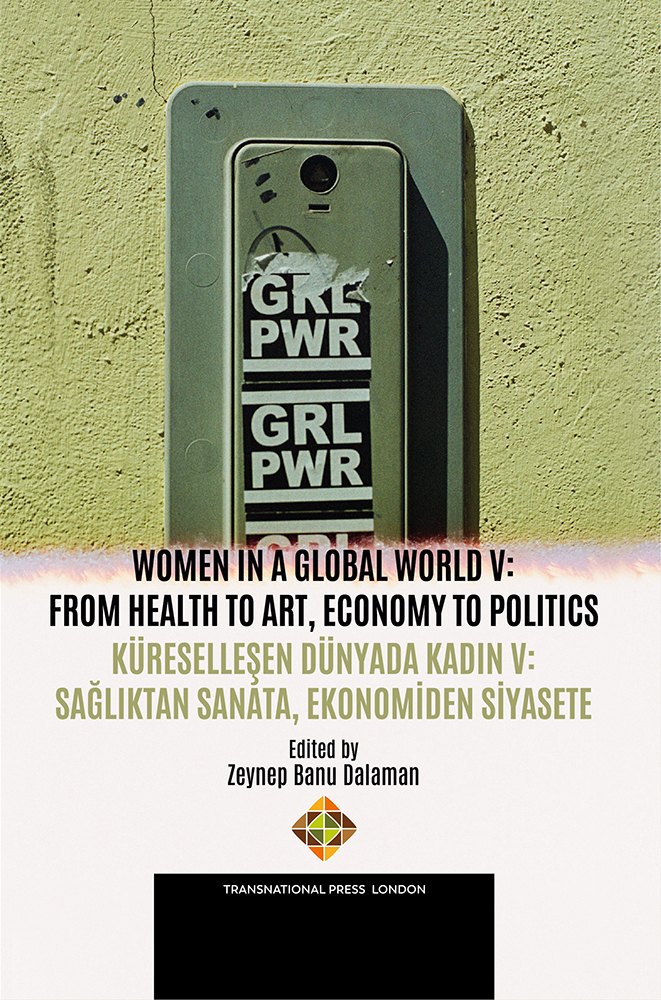Bir Öznellik Arayişi: İki Yokluk Arasinda Bir Varoluş Hikâyesi
A Search for Subjectivity: A Story of Existence Between two Absences
Author(s): Derya Güllük
Subject(s): Gender Studies, Sociology, Identity of Collectives
Published by: Transnational Press London
Keywords: Femininity; patriarchy; identity; province;
Summary/Abstract: Constructed on a political, social and cultural ground, women’s identity has been addressed in a wide spectrum in the world of literature. With the 21st century, women’s identity, which has been discussed on an increasingly “politicized” ground, has come to the forefront with feminist theory and postmodern approaches. It is observed that women are questioned about their bodies, sexuality, motherhood roles, marriages and their visibility in domestic and public life, while the distance between the image of womanhood woven within the framework of cultural codes and the women who try to overcome them and want to establish a consciousness of “self” is also emphasized. At this point, Seray Şahiner, who started writing in the 2000s and who deals with the positioning of women in social life and the status of womanhood in her narratives, chose her protagonist from a slum neighborhood in her novel Kul (2007), for which she won the 2018 Orhan Kemal Novel Award, and in her novel Kul (2007), she dealt with the evolution of a woman who makes a living by cleaning stairs into an “invisible” woman by no longer being able to construct her own self when she cannot meet the roles of “mother” and “wife” marked by social norms. Womanhood is again constructed within the framework of the norms prescribed by society, and the woman who fails to meet these norms is unable to construct her own self and becomes objectified under the gaze of society. In Kul, we do not see Mercan in active resistance and she is almost purged from the center of her own life. Due to Mercan’s inability to establish a family, her house could not turn into a home, and the material destruction of the house in coordination with the urban transformation, which is particularly visible in the novel, brought along its spiritual collapse. Şahiner constructs the present of a woman whose past, childhood, longings and dreams we do not know through two absences. There are two important absences in Mercan’s life, two great emptinesses that hurt her deeply; the absence of her husband, whom we do not know why he left her, and the absence of a son who does not exist but whose existence she imagines. While these two absences occupy Mercan’s mind, we also read the wounding effect of not being able to be a wife and mother on her self and her questioning her femininity. In this questioning, he will always look for shortcomings in himself, list reasons and blur reality. Unable to get out of the patriarchal system of thought, unable to transcend the boundaries when she could have been a perpetrator, Mercan is tossed about in the chaos of the city. Constructed through the roles of wife and motherhood, womanhood seems to bury the woman’s self and identity under a pile of rubble when these two foundations on which it was built collapse. Ultimately, in this study, we aim to read the extent to which women’s existence has been blurred within the patriarchal system through the possibilities of feminist criticism.
Book: Küreselleşen Dünyada Kadın V: Sağlıktan Sanata, Ekonomiden Siyasete
- Page Range: 151-168
- Page Count: 18
- Publication Year: 2024
- Language: Turkish
- Content File-PDF

